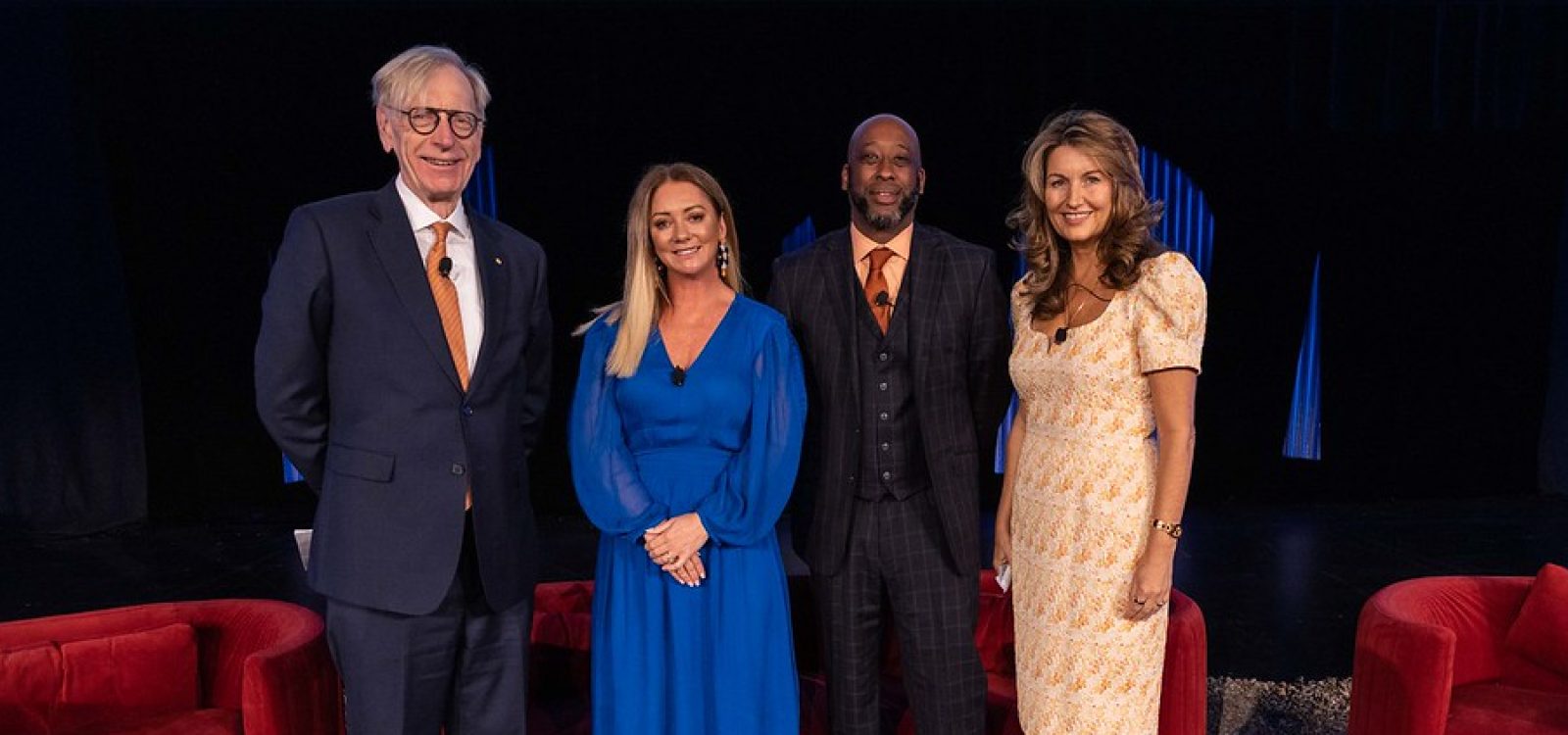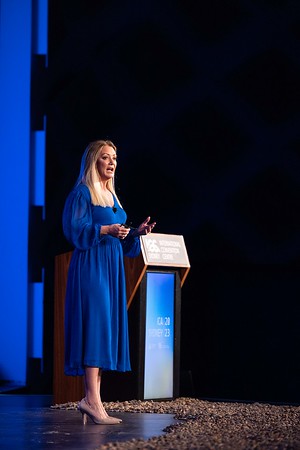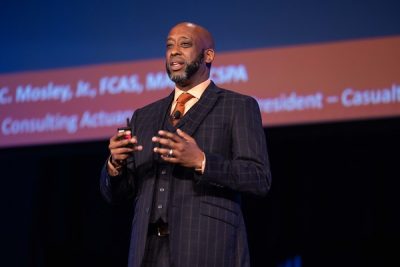
Customers and the trust deficit
How can organisations repair the ‘trust deficit’?
In this session chaired by Nicolette Rubensztein, The Hon. Kenneth Hayne AC, Amanda Stevens, Roosevelt Mosley and Andy Agathangelou explored the troubled past of financial services organisations, discussed how to earn the trust of today’s consumers and what actuaries can do to restore customer trust.
Andy Agathangelou is the founder of the Transparency Taskforce. He opened this ICA2023 session with a clear message: there has been a widespread collapse of trust in ‘the establishment’ and this is particularly important to firms in financial services where trust is perhaps the most important commodity.
Drawing on the UK’s Violation Tracker, Mr Agathangelou said financial services firms are ‘top of the naughty lists’ with the same organisations transgressing over and over again, leading to the conclusion that being caught and fined is now simply ‘the cost of doing business’. Crucially, poor conduct by individuals is not sufficiently sanctioned.
His solution to this wholesale trust and confidence deficit is a new mindset: one where we all take responsibility – even for actions we are not responsible for.
More than compliance

The Hon. Kenneth Hayne AC’s sobering presentation focused not just on whether the financial services industry was compliant but whether it met community expectations. His Royal Commission received some 10,000 complaints via web form alone. The community was deeply dissatisfied with the banking and financial services industry, and many in the industry also accepted they were falling short.
Hayne examined the connection between conduct and reward and the deep asymmetry of power and information between provider and customer. This is particularly important in situations where the customer is relying on the provider for advice, as the role of advisor implies a duty to act in the client’s best interest. As he put it, “can the advisor stand in more than one canoe?”
Hayne asked the audience to consider whether regulation alone will work. In his view, we need to move beyond regulation and think more about standards – particularly in the areas of culture, governance and remuneration.
Milestones matter

Turning to take a customer view, consumer futurist Amanda Stevens explained to the assembled actuaries the extraordinary change consumers have dealt with in the past three years. Thanks to COVID-19 and the associated lockdowns and restrictions, 1.4 million households made their first online purchase in 2020. Online wine sales soared by 82% and the smell of homemade sourdough was everywhere – bread maker sales increased by over 600%.
Amanda Stevens reminded the audience that one of the defining effects of COVID-19 has not really been acknowledged and discussed, perhaps because it has been less visible – or simply less talked about – than issues such as daily infection tallies, vaccine delivery, economic stimulus and the slow easing of restrictions.
Research suggests that those COVID-19 restrictions forced Australians to miss many vitally important personal milestones – engagements, marriages, birthdays and, of course, funerals. On average, Australians missed four to five of these key human milestones during lockdowns – that’s 100 million missed human milestones. According to Ms Stevens, brands that understand the importance of those lost opportunities, those missed moments of connection, could recapture the trust and perhaps affection of consumers.
Given the social and economic disruption consumers experienced over the past three years, businesses need to think clearly about the macro issues that are keeping customers awake; issues like cost of living, healthcare and housing affordability. They also need to focus on building community, says Amanda Stevens, citing Bendigo Bank as the most trusted bank in Australia due to its highly visible community presence.
What can actuaries do?

Roosevelt Mosley is the current president of the Casualty Actuarial Society (CAS). When reminding his audience of the value of trust, Mosley quoted his mother: “Trust takes years to build, seconds to break and forever to repair.”
One of the important ways actuaries can build and repair trust is to look past their skills, techniques and relationships with business partners to think more clearly about the real customers they serve.
He reminded the attending actuaries – assembled from all around the world – about the codes they serve under, codes that use words like integrity, honesty and collective responsibility.
Turning to the role that actuaries can have as future trust builders, Mr Moseley cited the increasing focus on fairness in the United States when dealing with data in insurance that may have been collected with bias.
He emphasised the role actuaries can play not just in identifying and measuring risk but in working with others on risk mitigation. Finally, he discussed the growing importance of actuaries’ role as those who safeguard the transparency with which organisations and government manage big data and the outputs of machine learning and artificial intelligence.
To learn more about what was discussed in this session, check out the below graphic recording from artist Tatum Kenna, who live illustrated and scribed key takeaways from this session.
CPD: Actuaries Institute Members can claim two CPD points for every hour of reading articles on Actuaries Digital.






